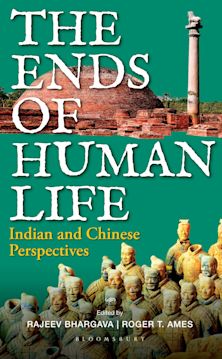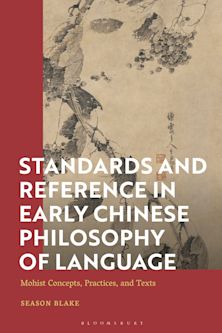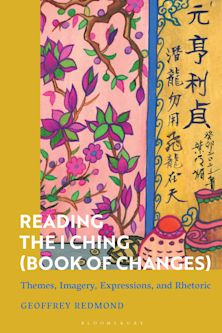- Home
- ACADEMIC
- Philosophy
- Chinese Philosophy
- Confucian Ren and Feminist Ethics of Care
Confucian Ren and Feminist Ethics of Care
Integrating Relational Self, Power, and Democracy
Confucian Ren and Feminist Ethics of Care
Integrating Relational Self, Power, and Democracy
You must sign in to add this item to your wishlist. Please sign in or create an account
Description
The rehabilitation of Confucian tradition raised new challenges to Chinese feminist thinkers. Can a Confucian ideal of reciprocity help women realize their equality? What is the hope for Chinese women seeking a social ideal of equality given the growing gender gap in the current economic development of China? Yuan argues Confucianism cannot help unless it is integrated with feminism. In this book, Yuan explores why gendered stratifications perpetuated so deeply in today’s China through the influences of Confucian cultural tradition, but reading early Confucian texts as a cosmological vision of Ren with Dao and ontological oneness as a whole that is the unity of heaven, earth, and humanism, we might reclaim Confucian egalitarian aspects to develop its openness for gender equity with integration of feminist critical care ethics. Throughout the book, Yuan provides multiple perspectives of comparison: relational self vs. power differentials, gender roles differences vs. political demand for equality, and individual reciprocity vs. connection based reciprocity, etc. to embrace inclusive methodology and caring democracy. We see a great hope to break through stereotypes of binary thinking of Minben (people oriented) and Minzhu (autonomous democracy), gender division of labor, reason and emotion, etc. Yuan argues we should integrate feminist critical thoughts of global justice/care with early Confucianism, since both traditions emphasize caring relationships in humanity and interdependency between social individuals within and beyond their communities in a global scale. Importantly, the integration enlarges our philosophical visions of how cultural traditions can be undeniable sources for strengthening contemporary social ideas of humanity, democracy, equality, and freedom for all.
Table of Contents
Chapter 1 Strength and Weakness of Early Confucian Ethics on Women
Chapter 2 A Debate about Minben and Minzhu: Toward Caring Democracy
Part II
Chapter 3 Feminist Critiques of Gender Inequality and Ethics of Care
Chapter 4 Notions of Reciprocity: Kongzi, Kant, Beauvoir, and Critiques of Gender Roles
Chapter 5 Methodology of the Ethics of Care: Integrating Care and Justice
Part III
Chapter 6 Hume’s Sympathy, Mengzi’s Empathy, Feminist Interpretations: Extensive Virtue
Chapter 7 China’s Population Policy: Aging, Gender, and Sustainability
Product details
| Published | 28 May 2019 |
|---|---|
| Format | Ebook (Epub & Mobi) |
| Edition | 1st |
| Extent | 182 |
| ISBN | 9781498558198 |
| Imprint | Lexington Books |
| Publisher | Bloomsbury Publishing |
About the contributors
Reviews
-
This book is a perfect example of the kind of scholarly rigor that all histories of discourse should aspire to and serves as a powerful contribution to the interdisciplinary study of Confucianism, feminism, and the democratization of China.
Religious Studies Review
-
Yuan's efforts advance the broader project of highlighting valuable and effective concepts and attitudes within Confucianism that can support feminist social goals. Ren appears to be a good candidate for inclusion in a care ethics framework. Situating ren in the relational ontology of heaven, earth, and humanity, and in the reciprocal ethics of zhong and shu, this book shows where Confucianism can speak the language of feminism, equality, and democracy. It also takes a critical stance in identifying the Confucian concepts and attitudes that stand in the way of gender equality, especially the traditional support of power hierarchies for the sake of social stability. Clearing Confucian theory of this kind of rigid stratification may make it much more applicable to the contemporary egalitarian milieu. This paves the way for actual policies--such as state-sponsored home medical care for elderly women in rural China--that recognize the existential need in every human life to be cared for at times. Yuan's vision of this is an egalitarian ren politics of reciprocal caring with each other, which is a contemporary moral ideal rooted in the deep wisdom of traditional values.
Hypatia: A Journal of Feminist Philosophy
-
Lijun Yuan has presented a renovating, robust study of Confucian and feminist care ethics, and creatively engage in a profound dialogue between Eastern and Western philosophies. This is as grounded and deep account of care ethics as one who does comparative studies wishes for. It also raises the profound questions of the foundation of ethics. The suggestion of a fusion of the Confucian and feminist horizons of the book is thought-provocative, and attractive.
Xunwu Chen, University of Texas
-
A most comprehensive comparative study of Confucian ethics of ren in ancient China and feminist ethics of care in contemporary West, Yuan's book exemplifies a unique and highly fruitful methodology of comparative philosophy. It also seamlessly combines theoretical construction and practical concerns. A must read for anyone who is interest in Confucianism, feminism, and/or comparative philosophy.
Huang Yong, The Chinese University of Hong Kong
-
The book is a timely synthesis of the Ethics of Care and Confucian reciprocity, bringing together the promise of disparate philosophical traditions, one ancient, one modern, to help improve the lives of contemporary girls and women.
Maureen Sander-Staudt, Southwest Minnesota State University

ONLINE RESOURCES
Bloomsbury Collections
This book is available on Bloomsbury Collections where your library has access.



































